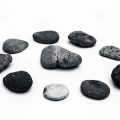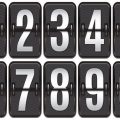Understanding Bazi: The Basics of Your Birth Chart
If you’ve ever wondered how your birth date can reveal insights about your health, personality, and destiny, Bazi offers a fascinating lens. Rooted in ancient Chinese metaphysics, Bazi—sometimes called the Four Pillars of Destiny—maps out your unique energetic blueprint using your year, month, day, and hour of birth. This isn’t just astrology; it’s a time-honored system that weaves together cosmic cycles and earthly rhythms to highlight your strengths, vulnerabilities, and life path.
In American culture, we often look to horoscopes or personality tests for self-understanding. Bazi takes this a step deeper by integrating thousands of years of wisdom into a personalized chart—a kind of celestial roadmap designed just for you. Each pillar in your Bazi chart represents an element and animal sign that interact with one another, creating a dynamic story about who you are at your core. This story includes clues about your natural constitution, potential health patterns, and the best ways to nurture yourself physically and emotionally.
By learning the basics of Bazi, you can start to see how your birth data forms more than just a number or a sign—it creates an intricate tapestry reflecting your nature and destiny. Through this gentle introduction, you’ll discover how ancient knowledge meets modern wellbeing, guiding you toward greater self-awareness and holistic health.
2. The Five Elements and Your Body: What Your Chart Reveals
When exploring your Bazi chart, one of the most powerful ways to understand your health lies in the Five Elements—Wood, Fire, Earth, Metal, and Water. Each element is more than just a symbol; it is intimately linked to specific organ systems, emotional tendencies, and energetic patterns within your body. By identifying which elements dominate or are lacking in your chart, you gain unique insight into both your natural strengths and your potential vulnerabilities.
How the Five Elements Reflect Your Well-being
In traditional Chinese metaphysics, these elements don’t just represent nature—they mirror the intricate connections between your mind, body, and spirit. Here’s how each element correlates with key organ systems and life energies:
| Element | Organ System | Associated Qualities | Possible Vulnerabilities |
|---|---|---|---|
| Wood | Liver & Gallbladder | Growth, flexibility, vision | Stress, frustration, tension |
| Fire | Heart & Small Intestine | Passion, joy, warmth | Anxiety, restlessness, insomnia |
| Earth | Spleen & Stomach | Nourishment, stability, empathy | Worry, digestive issues, overthinking |
| Metal | Lungs & Large Intestine | Clarity, order, boundaries | Sadness, grief, respiratory concerns |
| Water | Kidneys & Bladder | Wisdom, resilience, adaptability | Fearfulness, fatigue, lower back pain |
Your Personal Element Balance Matters
The interplay of these five elements in your Bazi chart creates a personal blueprint that influences not only physical health but also emotional well-being. For example, someone with strong Wood energy might be naturally driven and visionary but should watch for signs of tension or impatience. In contrast, an imbalance in Earth could point to digestive sensitivities or chronic worry.
A Holistic Approach to Self-Care Guided by Destiny
Your Bazi chart invites you to honor the natural rhythms of your body and spirit. By recognizing which elements need support or balance in your life—through diet choices, lifestyle changes, or even mindfulness practices—you can nurture both resilience and inner harmony. Embracing this ancient wisdom gives you a compassionate roadmap toward healing and wholeness on your unique life journey.

3. Spotting Strengths: Where You Shine in Health
Bazi isn’t just about finding your weaknesses—it’s also a powerful tool for discovering your natural health strengths. Each person’s chart is a unique blend of the Five Elements—Wood, Fire, Earth, Metal, and Water. When certain elements appear in harmony or abundance, they can indicate areas where you naturally thrive, both physically and emotionally. For example, if your Bazi chart shows a strong Wood element, you might possess vibrant growth energy, giving you a robust immune system and an ability to bounce back from setbacks with resilience. Those blessed with balanced Fire often have a passionate heart and a zest for life that fuels their well-being. If Earth is prominent and well-supported, you may find yourself grounded and stable, with a digestive system that rarely gives trouble.
These elemental combinations don’t just shape how your body works—they influence your mindset and emotional health as well. In American culture, we often celebrate individual strengths and the “can-do” spirit; your Bazi chart can highlight exactly where this inner vitality lives within you. Maybe you’re someone who thrives under pressure because of strong Metal energy, or perhaps your Water element gives you a calm adaptability that helps you manage stress gracefully. Recognizing these strengths isn’t about bragging rights—it’s about honoring the gifts you already carry and letting them guide you toward a healthier, more fulfilled life. By embracing your elemental advantages, you can lean into self-care routines and lifestyle choices that amplify what already makes you resilient, vibrant, and uniquely you.
4. Finding Vulnerabilities: Areas to Nurture
In the journey of self-discovery and wellness, your Bazi chart can be a gentle guide, revealing not only your inherent strengths but also the areas where you may need extra care and attention. By understanding the elements that are less prominent or imbalanced in your Bazi, you can uncover potential health sensitivities—physical, emotional, or energetic—that deserve nurturing.
How Bazi Reveals Health Vulnerabilities
Bazi divides your energy into five elements: Wood, Fire, Earth, Metal, and Water. Each element corresponds to different organs and emotional tendencies according to traditional Chinese wisdom. When certain elements are weak or missing in your chart, it may point to parts of your body or mind that need special support. Recognizing these vulnerabilities is not about fear—its about empowerment. With awareness comes the ability to nurture yourself with intention and compassion.
Common Elemental Weaknesses and Their Health Associations
| Element | Possible Vulnerabilities | Areas to Nurture |
|---|---|---|
| Wood | Liver & Gallbladder issues, stress sensitivity | Practice relaxation techniques, engage in regular movement like yoga or walking, support liver health with leafy greens |
| Fire | Heart & circulation concerns, anxiety | Cultivate joy through social connections, practice mindfulness, include heart-healthy foods like berries and nuts |
| Earth | Digestive imbalances, worry or overthinking | Adopt grounding routines such as mindful eating and journaling, nourish with whole grains and root vegetables |
| Metal | Lung & respiratory issues, grief or detachment | Breathe deeply in fresh air, create rituals of release (like writing letters), eat foods that support lung health (pears, radish) |
| Water | Kidney & bladder sensitivity, fear or burnout | Pace yourself with restorative practices (meditation, gentle stretching), stay hydrated, eat nourishing soups and stews |
Nurturing Your Body and Soul Holistically
Your Bazi chart doesn’t define your destiny—it invites you to co-create it. By recognizing the areas where you may be more sensitive or vulnerable, you can make empowered choices to nurture both body and soul. Whether it’s seeking out community when Fire is low or slowing down for deep rest when Water needs replenishing, this awareness becomes a loving act of self-care. Let your vulnerabilities guide you toward deeper healing and holistic balance.
5. Practical Wellness Tips: Aligning with Your Elemental Needs
Feeling empowered on your wellness journey starts with recognizing your unique Bazi elemental composition and embracing practical self-care that fits your everyday American lifestyle. Here are ways to honor your chart’s strengths and vulnerabilities through intentional choices:
Personalized Self-Care Rituals for Each Element
Each of the five elements—Wood, Fire, Earth, Metal, and Water—thrives with different forms of nourishment. For example, if you’re Wood-strong, prioritize morning walks in nature or join a local hiking group to channel your dynamic energy. If Fire is prominent, try group fitness classes or community volunteering to spark joy and connection. Earth types may benefit from mindful gardening or preparing wholesome meals at home, grounding themselves with simple routines. Metal personalities can restore balance by decluttering their space or practicing breathwork meditation. Water-dominant individuals might find solace in journaling or swimming, tapping into introspection and flow.
Integrating Bazi Wisdom into Modern Life
Bazi insights don’t have to feel foreign or complicated. Blend them seamlessly with familiar American practices—like meal prepping healthy lunches for work, finding movement you love at a local gym, or scheduling regular “me time” for rest and reflection. Consider using apps that track sleep or hydration to support your elemental needs; for instance, Wood types may need more active breaks during the day, while Water types should prioritize deep rest.
Building Resilience Through Mindful Choices
Your Bazi chart highlights where you shine and where you might be vulnerable. By tuning into these patterns, you can make lifestyle adjustments that boost resilience. If stress targets your weakest element—say, too much Fire causes burnout—practice cooling activities like evening yoga or herbal teas. Support yourself with balanced nutrition (think hearty grains for Earth, spicy foods for Fire, leafy greens for Wood), and surround yourself with friends who uplift and understand you.
Nurturing Body, Mind, and Spirit Every Day
Ultimately, the wisdom of Bazi is about self-compassion and conscious living. Use your chart as a gentle guide—not a rigid rulebook—and experiment with daily habits that bring you energy and peace. Whether it’s joining a book club (for Metal clarity), enjoying soulful music (for Water calm), or volunteering in your neighborhood (for Earth purpose), align your self-care with both ancient insight and the rhythms of modern American life. With each step, you’ll cultivate harmony within yourself—and thrive in every season.
6. Listening to Your Destiny: Embracing the Journey
As you explore your Bazi chart and its connection to health, it’s important to remember that this ancient wisdom isn’t about locking you into a predetermined fate. Instead, Bazi invites you to become more mindful—encouraging gentle self-reflection and compassion as you navigate life’s ups and downs. By recognizing both your strengths and vulnerabilities, you can cultivate a deeper understanding of what your body and soul truly need.
Bazi is less about prediction and more about empowerment. When you see patterns in your chart—maybe a tendency toward stress or an area of resilience—it’s not a verdict, but a loving nudge from the universe. It asks you to listen inward, honor your needs, and support your well-being in ways that feel authentic to your unique journey. In American culture, where we often value independence and personal growth, Bazi can serve as a gentle guide for making conscious choices that align with who you are at your core.
Reflecting on your chart is a practice in self-acceptance. When challenges arise, instead of blame or worry, approach yourself with kindness. Let your chart remind you that every person’s path is different—and that healing doesn’t look the same for everyone. Some days might call for action; others might require rest or reaching out for support. Trusting the messages within your Bazi empowers you to move forward with courage and hope.
Ultimately, embracing your destiny through Bazi means honoring the story only you can live. It’s about showing up for yourself with love, curiosity, and a willingness to grow. As you listen to the subtle wisdom within your chart, may you find greater harmony between mind, body, and spirit—knowing that each step along your unique path brings opportunities for renewal, healing, and joy.


